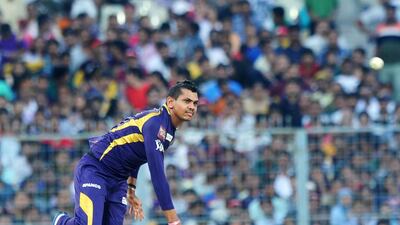As the Indian Premier League kicks off, here are a few talking points to look out for:
Batting boom
The 2015 World Cup could be said to be the first in which the full impact of Twenty20 batting has been felt.
Run-rates have generally increased and in particular towards the end of an innings – with the field restrictions – batting has gone beyond all known boundaries.
Will this flowering feed back into the IPL this season? Can we expect to see even bigger team scores, or individual ones? Maybe there are new shots waiting to be invented?
Attack
The flipside of the batting boom in ODIs was, at least in this World Cup, a greater commitment to attack by bowlers. Clearly it helped they were bowling on more responsive surfaces in Australia and New Zealand, but it felt like a mental unshackling for captains and bowlers alike.
More catchers, more pace, more aggression. The IPL and Twenty20 has emaciated bowlers for too long, turning them into run-saving machines. Maybe, just maybe they will find a way to attack this season.
FOLLOW OUR COMPLETE IPL COVERAGE
Calling all actions
The little hullaballoo over Sunil Narine and his action may be over for now, but it is not really over. Narine was called first at the Champions League, an IPL off-shoot and has never been called internationally. He returns with a remodeled action but umpires will keep a close eye on a man who is one of the league’s most successful bowlers.
And just before the season began, the BCCI reinforced the message to its umpires that they keep a close eye on the actions of all bowlers. Expect a few to be called.
Homegrown umpiring
It is easy to forget that the IPL is, ultimately, a domestic league and as such, its primary motivations are to encourage homegrown talent.
In which case one objective has been achieved. India has not had an elite umpire for years but this year’s IPL is the first in which there will be considerably more Indian officials than international ones (17 out of 26).
Eventually, the aim is for them to compete in the heat of international competition so what better way to assess them than in the frenzy of the IPL?
Behave!
Rohit Sharma has apparently asked IPL umpires to give players more leeway in their banter on-field.
Sharma, alongside Virat Kohli, has often been at the centre of various episodes of sledging in international cricket.
With international cricket clamping down on bad behaviour, it will be interesting to see how umpires take to Sharma’s suggestion for the opposite to happen.
It is not as if the IPL has been a paragon for gentlemanly on-field conduct.
osamiuddin@thenational.ae
Follow us on Twitter at our new home at NatSportUAE
